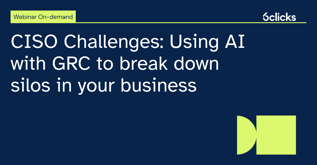The Managed Security Services market was estimated to be nearly USD 23 billion in 2021 and is expected to grow to USD 43.7 billion by 2026. This sort of growth trajectory begs the question, “What exactly is driving the growth”?
State of the market for managed security services
There are two primary reasons for the rise of the managed security services market. Firstly, the remote work culture that has been rapidly adopted post Covid-19 has created new security challenges. Secondly, the global skills shortage is making it difficult for smaller staffed organizations to meet their security needs. With cybersecurity also becoming a growing concern, businesses need a way to access security capabilities.
Further, engaging outsourced managed services for a company’s IT resources can be a way to ensure substantial budget savings, more resilient computing capacity, and more secure network uptime and performance. Organizations realize that hiring MSSPs to perform ongoing security monitoring is an efficient and cost-effective way to do the necessary and complex work of assessment and continuous response, work which requires a qualified staff and digital transformation.
Market response
The increased complexity of cyber threats, coupled with increased regulatory oversight has driven the trend toward outsourcing. To keep up, digital transformation has become a top priority for service providers globally and is spreading rapidly as a greater number of MSSPs are implementing formal digitization strategies to support their efforts and their client's requirements.
Because of threats to the integrity, confidentiality, and availability (or obtainability) of organizational information, MSSPs are also focusing on providing a standardized model for information security, typically using a framework, such as NIST-CSF or ISO27001. The emphasis is on a risk-aware approach to establish, implement, operate, monitor, review, maintain and improve overall information security for customers.
Among many examples, in February 2022, IBM announced an investment in its resources to help businesses in the Asia-Pacific (APAC) region prepare for and manage the growing danger of cyber-attacks. The new IBM Security Command Center, the first of its kind in the region, will be used to educate cybersecurity response strategies using extremely realistic, simulated cyberattacks to prepare everyone from the C-Suite to technical personnel. The move also includes a new SOC, which will be part of IBM’s current global SOC network, providing security response services to clients around the world 24/7.
While today the MSSP market is fragmented due to existing giants, the market is anticipated to encounter a number of partnerships, mergers, service launches, and acquisitions as organizations continue to invest strategically. Two examples of this are the Accenture acquisition of Symantec’s cybersecurity services business, to incorporate flexibility into their security services and Verizon’s integration of Blackberry Cylance’s AI-based anti-virus solution into its security services portfolio. Both are indicative of the increasing demand for AI-based cybersecurity solutions, and both underscore the growth potential that the market presents.
Doing more with less
Gartner recently named hyper-automation as one of the top strategic technology trends for 2022, particularly suited for the business process automation MSSPs are seeking. The term 'hyper-automation' refers to streamlining processes by automating on a large scale, addressing whole systems instead of parts of systems. The idea is to introduce automation as much as possible using multiple technologies such as machine learning and next-gen AI.
As MSSPs are always looking to improve margins, the focus on automation should come as no surprise. In fact, by 2024 Gartner predicts MSSPs will have lowered their operational costs by as much as 30% through hyperautomation.
Artificial intelligence excels at optimization and automation, analyzing large volumes of data and contextual criteria. And it’s fully within reach. Incorporating hyperautomation strategies and philosophies is a matter of procuring the right talent and engaging in cultural change, something an MSSP of any size can achieve.
There’s no need to start from scratch, though. The market offers many solutions, such as 6clicks Hailey AI engine. By leveraging Hailey, MSSPs can optimize compliance and governance oversight for organizations, at a fraction of the cost of traditional methods. What’s more, as a SaaS solution, 6clicks can easily fit into an existing technology stack and make the work of your staff easier and your organization more cost-effective.
How does 6clicks offer value to MSSPs?
The AI engine Hailey is definitely a huge advantage for MSSPs, but that’s not all. The 6clicks also provides multi-tenancy through its unique Hub & Spoke architecture. This lets MSSPs manage multiple clients with surprising agility and ease. It also empowers them to take on more clients, and larger clients, and boost their revenues.
MSSPs can onboard clients to the 6clicks platform and enable them to access the inbuilt massive content library. Alternatively, MSSPs can also upload their own content to the platform and let their clients use the documents for assessments, policies, etc. With the option to resell licenses, there are multiple options for MSSPs to improve the quality and range of their service offering.
More information about the 6clicks partner program is available on our pricing page for MSPs and Advisors.
Automation and AI are the future as we swiftly adopt cognitive technologies and move towards GRC 5.0. If this sounds interesting, see for yourself how the 6clicks platform leverages automation and AI by taking a tour of our platform.
Related useful resources
Written by Craig Adams
Craig leads 6click's sales, partnerships and marketing functions and is responsible for revenue-generation strategy and execution, as well as our go-to-market approach. Craig has extensive experience in scaling and growing GRC vendors, having previously served as the EMEA Managing Director of Protecht and as well as a VP of Sales for Diligent. Craig is based in London and holds a Bachelor's in Computer Science from Cardiff University.









